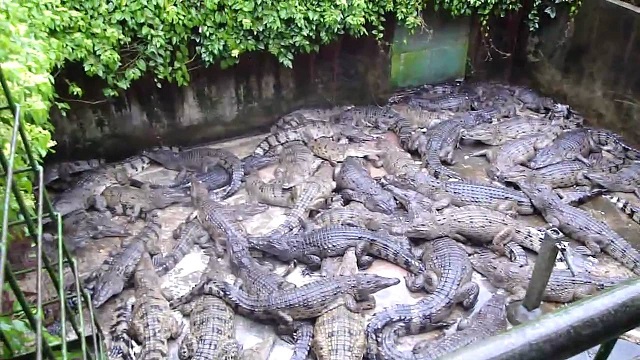
The Sunday News

Allan Foti in Shurugwi
A SHURUGWI businessman has unveiled plans to establish a fresh water crocodile farm in the predominantly mining community.
The businessman, Mr Nicholas Gara spoke to Sunday Life last week and revealed that he intends to establish the crocodile farm on two hectares of land. Mr Gara already owns two mines, a mill, a lodge, service station and a football club in the mining town.
Mr Gara said he plans on building breeding ponds with a carrying capacity of at least 500 of the reptiles at any given time on the available land. He said work is expected to begin within the next six months and plans were at an advanced stage for construction to begin at the site which is behind his Nichrut Lodge along the Shurugwi-Gweru Highway.
Mr Gara said he was inspired to establish the crocodile farm after a visit to the Chiredzi crocodile Farm three years ago where he fell in love with the business and the business opportunities available.
“Three years ago I visited a crocodile farm in Chiredzi where I fell in love with the idea after the owners walked me through the business. I immediately bought my first pair of breeding crocodiles which were five years old at the time,” Mr Gara told Sunday Life.
Mr Gara noted that one crocodile can lay between 30-50 eggs, while only few got to the water. The crocodiles breeding in the farm will be fed regularly and consequently grow faster and healthier, according to Mr Gara.
He also noted that Shurugwi can achieve profit by manufacturing the skin of the crocodiles after reaching four metres, whose price can fetch up to $4 000. Crocodile meat and hides from the farm are expected to be exported to Europe and the United States. Crocodile meat fetches high prices at quality restaurants and hotels in the West while crocodile leather is used for handbags and shoes and is sold per inch.
“Crocodile farming is a very profitable business if done properly. Ever since I bought the two crocs that we have right now, we have been learning about the industry and about how to successfully run a crocodile farm. We expect work to build breeding ponds to commence in the next six months with the idea being that by the time we complete this work our crocs would have reached breeding age,” Mr Gara said.
The Shurugwi businessman added that he expects his crocodile farm to turn the mining community into a tourist attraction.
Crocodile farms breed the reptiles, whereas ranches incubate and rear hatchlings collected from the wild. Farms do collect eggs from the wild but they also keep breeding adults in their facilities to produce their own eggs whereas ranches do not. Farming and ranching operations typically return a certain percentage of juveniles to the wild at a size associated with a high survival rate, an approach that increases overall alligator survival rates from the low numbers of successful eggs and juveniles usually observed in the wild.
Tourism can bring additional revenue to crocodile rearing facilities, but they must be made safe for the public and the crocodiles, while maintaining an aesthetically pleasing environment. This frequently depends on enclosures that can be easily cleaned without harming the animals. If closed to public viewing, facilities have fewer requirements and can have a more practical design.




